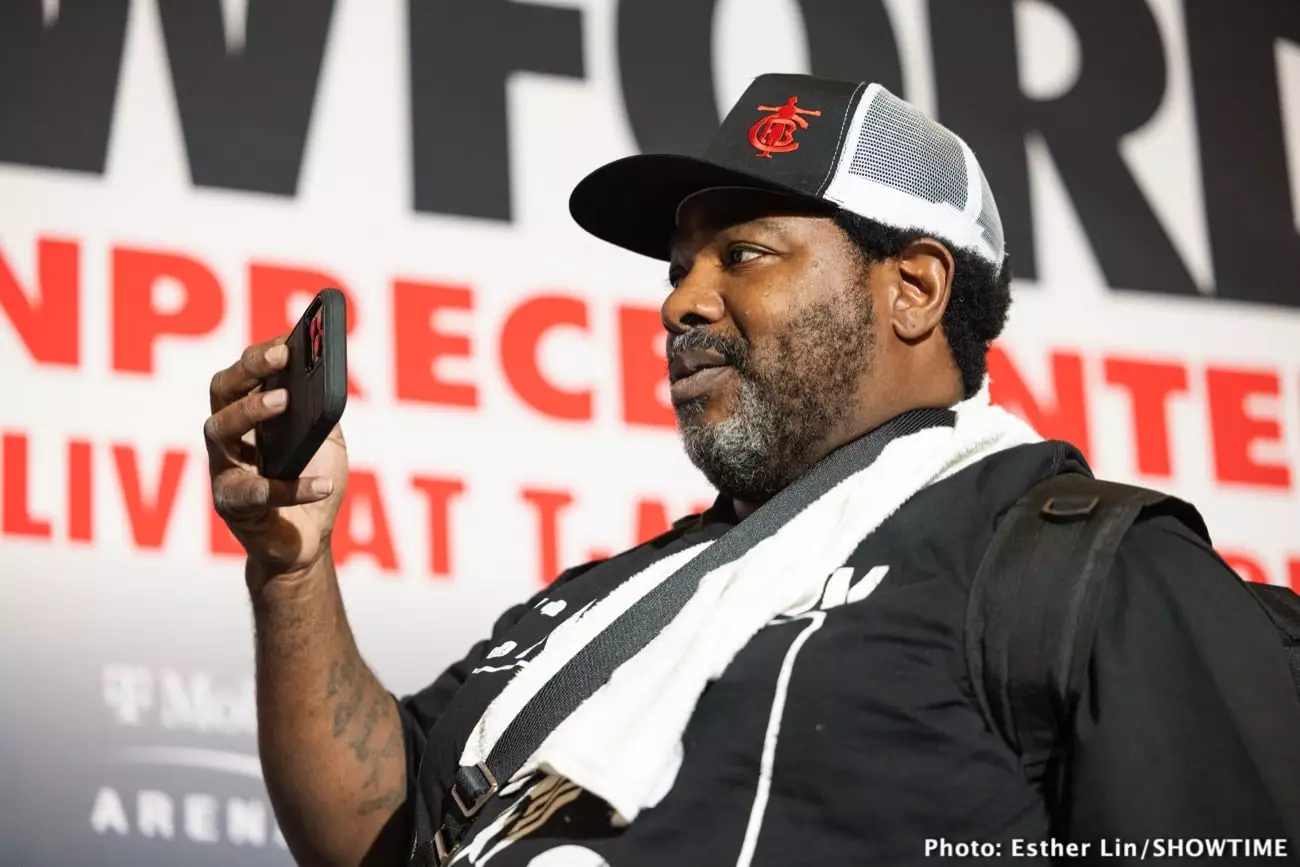In the world of professional boxing, few decisions spark as much debate as the choice to ascend to higher weight classes, especially when facing champions of unprecedented caliber. Terence Crawford’s decision to challenge Canelo Alvarez, the reigning WBA, WBC, and WBO super middleweight champion, on September 13th is a prime example. It’s hard to ignore the underlying motivations that accompany such a monumental leap from 147 to 168 pounds. Brian ‘BoMac’ McIntyre, Crawford’s trainer, vehemently asserts that the motivation is not financial, but rather to bask in the glory of legacy. However, examining the ramifications suggests that this claim may not tell the whole story.
Crawford, sporting an impressive record of 41-0 with 31 knockouts, aims to cement his place in boxing history. But does seeking validation and attempting to silence critics genuinely outweigh the tantalizing prospect of a substantial payday? The allure of financial gain in sports is undeniable. In Crawford’s case, moving up two divisions may correlate more closely with a lucrative paycheck than the sentimental pursuit of legacy. The reality is that in high-stakes boxing, often the lines are blurred between ambitions of greatness and the instinct to secure a comfortable financial future.
Skill vs. Strategy: A Dangerous Gamble
Doubts arise not only regarding Crawford’s decision-making but also concerning his performance history. In his last outing, he faced Israil Madrimov, a fight many observers deemed an even match until Crawford narrowly edged out a decision. Transitioning to a weight class boasting a slew of formidable warriors isn’t a trivial task, particularly when faced with a powerhouse like Canelo, who has a reputation for not only winning but dominating. If Crawford’s intention is to validate himself against the best, why not first confront the fierce contenders of 168 pounds before engaging with Alvarez? It raises a relevant inquiry: could Crawford’s ambition be clouded by a desire for riches rather than a pure pursuit of excellence?
While BoMac’s enthusiasm for Crawford’s potential success shines through, one cannot dismiss the instinct of survival present in the boxing ecosystem. The super middleweight division is teeming with talented fighters who could potentially expose Crawford’s vulnerabilities. Engaging with these athletes prior to challenging Canelo could not only build his prowess but help in understanding if he genuinely belongs at this weight class. Consequently, the question persists: Are the stakes of public opinion and legacy swelling to industrial levels of distraction, leaving Crawford at a unique risk?
Facets of Motivation: Proving Legacy vs. Chasing Money
Let’s disassemble the narrative that this bout is solely about legacy. For Crawford, ascending against a storied champion undoubtedly has its merits, but equating it strictly with a desire for excellence feels somewhat naive. In every sport, athletes yearn for validation, and monetary rewards often serve as a parallel proof of success. The reality that BoMac deprives belief from the notion of a money fight seems disingenuous when considering the potential financial windfall tied to such a high-profile clash.
What’s clear is that Crawford has entered a phase where his ambitions may directly align with the allure of financial security. His rigorous training and the gamble of moving up two weight classes can be viewed as both audacious and opportunistic. This specific showdown could either reinforce Crawford’s standing as one of boxing’s greats or see him topple among the ranks of competitors, relegating him back to his previous class, potentially with a diminished reputation.
Ultimately, while legacy is indeed a powerful motivator, especially for a fighter with Crawford’s credentials, the realities of professional sports often blend the noble pursuit of greatness with the irresistible lure of profitability. What’s paramount in boxing is adaptability— a skill that the best fighters possess. As Terence Crawford prepares for this future bout, it’s crucial both for him and the boxing world to glean from this pivotal moment, understanding that every venture carries its own inherent dangers.

